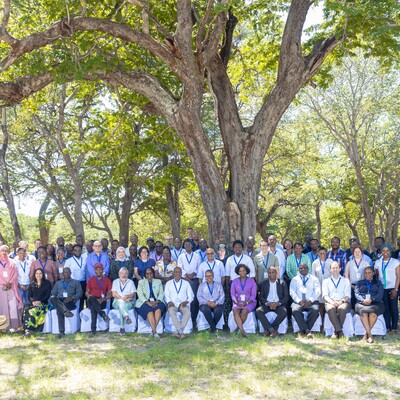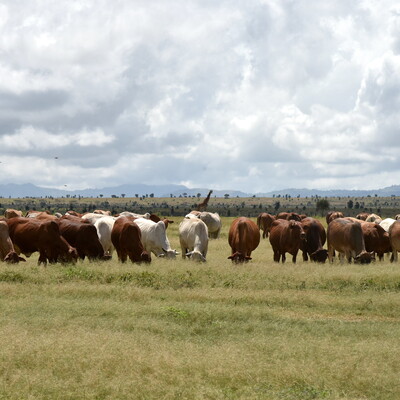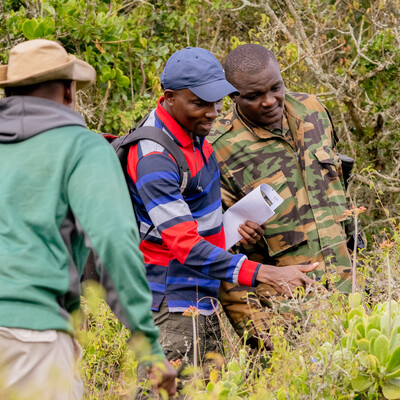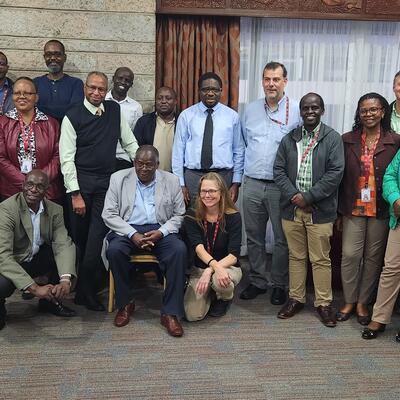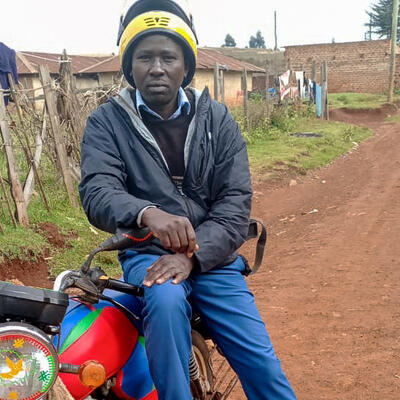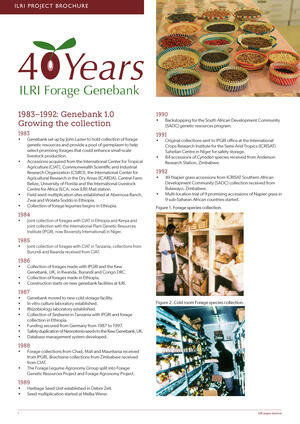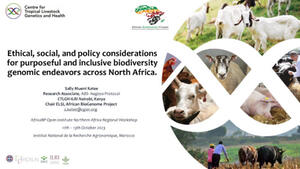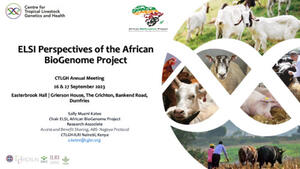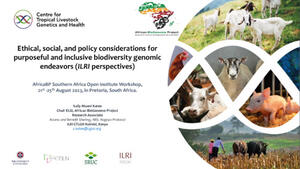
A better way for vegans, vegetarians, meat eaters and livestock herders alike—By ecologist Ian Scoones
Goat herds returning home at sunset in Namunyak Conservancy of the Northern Rangelands Trust. Kenya’s exceptional biological riches lure visitors from around the world, making wildlife tourism one of the top two earners of foreign exchange. USAID/Kenya support ensures that wildlife, livestock, and people can thrive as neighbours. Community conservancies protect wildlife habitat and provide emergency dry-season forage and livelihoods (photo credit: USAID/Donatella Lorch).
Agricultural ecologist Ian Scoones has some important and thoughtful things to say about the science and media publications promoting the recent ‘vegan craze’ in rich countries and the impacts of those publications on millions of livestock herders in poor countries.
‘There’s a vegan craze in full swing in Brighton in the UK—and it seems more broadly. . . . I have nothing against veganism, and I see its potential health, welfare and environmental benefits, certainly for consumers in northern Europe.
But what would a mass shift from livestock products mean for poor pastoralists living in marginal areas?
‘The argument to change diets to save the planet appears regularly in the UK press. A flurry of articles is usually prompted by a new study that “proves” that giving up meat and milk is a good thing. And so it was the case with the publication of an article in Science by J Poore and T Nemecek, titled “Reducing food’s environmental impact by producers and consumers”. The media bombardment was intense; perhaps even more so than previous rounds (see earlier blog).
‘In the Guardian, George Monbiot announced rather dramatically that “farming livestock for food threatens all life on earth”, while the Independent argued that not consuming meat and dairy could “reduce your carbon footprint by nearly three-quarters”. Damian Carrington, the Guardian’s environment editor, quoted the authors as saying that avoiding meat and dairy is the “single biggest” way to reduce the impact on the earth. Newsweek was more direct, with the headline: “Want to save the planet? Go vegan, says study”.
‘The narrative of these journalistic pieces is clear: changing your diet (ideally to veganism, but with vegetarianism a second-best) is the most important thing you can do for the environment and reducing your carbon footprint. And in reducing the use of land by livestock you can help a process of re-wilding, improving biodiversity too.
Sounds incontrovertible; but is it?
‘A closer look at the article (6 pages) and, more importantly, its supplementary material (76 pages plus the dataset) shows the argument (not surprisingly) is more subtle. It’s actually a useful paper, rather distorted by the press coverage. . . .
‘Inevitably, given the data requirements for their meta-analysis, the number of studies was restricted, both in number but crucially in location. Nearly all were from Europe, North America, Brazil, China and Australia, with very few from Africa and much of Asia . . . .
In other words, the study focuses in particular on mostly northern, industrial-style farming systems. Fine, but let’s not extrapolate too far.
‘Interestingly though, even with this limited sample, there were huge ranges in impact along production-consumption chains. This was their main point, and the one that the measured Oxford university press release emphasised.
There were very clearly high- and low-impact systems, each producing the same product.
The differences were dramatic, often orders of magnitude. This, the study argues, has major implications for what might be labelled, and how.
It’s not just the product, but the process of its production and its delivery to a consumer that needs a labelling system. One piece of meat or one kg of grain can have very different impacts. . . .
‘We also have to ask, what is the alternative use? The rewilding advocates assert that a rangeland emptied of livestock and pastoralists is a good one, because wild animals can roam freely once more, and (other) people can enjoy the wilderness. This, as argued before on this blog, is often an elitist romanticism with colonial echoes, particularly in Africa. . . .
The bottom line is that extensive livestock production on open rangeland is a livelihood that supports people in some of the most marginal areas of the planet.
In most cases there is no alternative. Growing vegetables and soy beans is simply not feasible.
And in many respects (despite all the biased, negative imagery), pastoralism is probably the most sustainable, low impact use of such environments.
There are impacts for sure, but there are also impacts from dispossessing pastoralists of land and livelihoods too (a facet ignored in the Science article and associated media commentary).
‘. . . Rather than reading the piece as a “livestock production must stop” (as Monbiot and co would have it), pastoral producers and their advocates (including businesses along the value chain and consumers of livestock products from pastoral areas) need to be more assertive in marketing, and counter the rhetoric of a singular pathway for changing diets that closes down, excludes and potentially impoverishes through an ideologically-driven, narrow framing of the issue, often selectively using available evidence.’
Why instead not have branded products . . . that demonstrate . . . lower impact products that support people and their livelihoods in poor and marginal areas, based on arguments for environmental justice, not rather selective interpretations of a limited sample of life cycle analyses.
As VSF International points out, a one-size-fits-all approach to dietary change potentially excludes 3.1 billion small-scale livestock producers across the world, where multiple opportunities lie for more sustainable livestock production; a point echoed in CELEP’s earlier response to The Economist’s rant about meat and pastoralism. . . .
Read the whole thoughtful article by Ian Scoones: The vegan craze: what does it mean for pastoralists?, PASTRES blog, 22 Jun 2018.
Agricultural ecologist Ian Scoones, co-director of the Economic and Social Research Council STEPS Centre at Sussex and joint convenor of the Future Agricultures Consortium hosted by the Institute of Development Studies at Sussex, has worked for 25 years on pastoralism and rangeland management, soil and water conservation, biodiversity and conservation, as well as dryland agricultural systems, largely in eastern and southern Africa. Most recently he has been working on the governance of agricultural biotechnology in India and veterinary/animal health science and policy in Africa.
PASTRES—Pastoralism, Uncertainty and Resilience: Global Lessons from the Margins—is a research project that aims to learn from the ways that pastoralists respond to uncertainty, applying such ‘lessons from the margins’ to global challenges. It is supported by the European Research Council and runs from 2018–2022.







